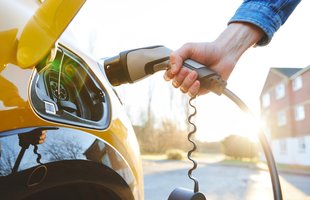The SUNRISE project will develop better battery materials based on silicon as a replacement for carbon in the cell anode, and will optimise cell designs for automotive use.
Silicon has a much higher energy density than carbon, and is already being used as a partial replacement. But, at levels beyond 10%, there are problems caused by expansion when the cells are charged and discharged.
The project, whose partners include silicon specialists Nexeon, leading polymer firm Synthomer, and University College London, seeks to overcome that hurdle, allowing more silicon to be used and improving the energy density of batteries. It has received £7m in funding from Innovate UK as part of the government’s Faraday Challenge.
“The biggest problems facing EVs - range anxiety, cost, charge time or charging station availability - are almost all related to limitations of the batteries”, said Scott Brown, CEO of Nexeon. “Silicon anodes are now well established on the technology road maps of major automotive OEMs and cell makers, and Nexeon has received support from UK and global OEMs, several of whom will be involved in this project as it develops.”






